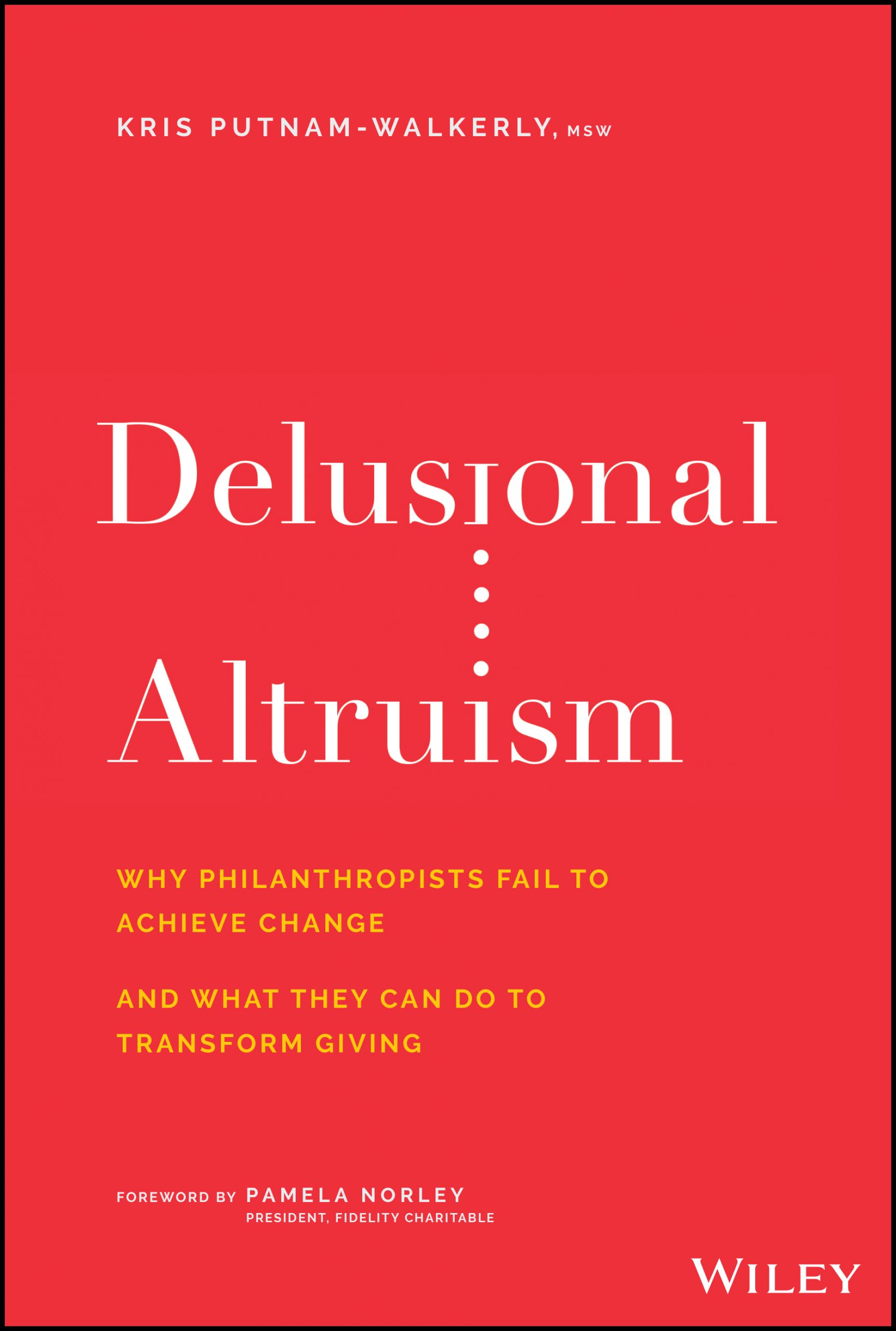Based on the first two words in its title, you might expect Kris Putnam-Walkerly’s new book to be some sort of extended criticism of the motivations driving people’s desire to give to charities or other organizations focused on helping people. Delusional Altruism: Why Philanthropists Fail to Achieve Change and What They Can Do to Transform Giving, however, isn’t a social tract lambasting phony concern for the plight of others. Instead, it is a guidebook of sorts taking readers through the mistakes well meaning individuals make when making philanthropic efforts and the right way to approach things when you want your giving to make a substantive impact.
The information contained within these pages is the result of over two decades of experience Putnam-Walkerly has in the area. She is a sought after public speaker on the subject of philanthropy, has assisted upwards of one hundred families and individuals strategically disseminate over half a billion dollars towards various philanthropic causes, and works as a respected advisor on the subject to an assortment of celebrity activists, foundations, Fortune 500 companies, and wealthy families. She thoroughly knows this issue, appreciates the challenges it poses, and Delusional Altruism can be read, in a way, as her own philanthropic gesture to those with a sincere desire to wrought meaningful change in our modern world.
She breaks the book in two succinct parts. The first deals with the aforementioned mistakes of both action and thought that many individuals make in the course of their philanthropic efforts. She titles the overall fifteen chapters of the book in a way that reflects specific attitudes and the first part looks at multiple stances people, families, and organization decision makers might assume that inhibit their ability to make genuinely impactful philanthropic moves. She is never judgmental however. An abiding feature of this book is her benevolent understanding of why people make the mistakes they do in this area and the mood of this first part is prescriptive rather than corrective. She identifies the problem in a way few readers will fail to understand.
BUY THE BOOK: https://www.amazon.com/Delusional-Altruism-Philanthropists-Achieve-Transform/dp/1119606063
The book’s second part is, essentially, rife with examples of “doing it right”. Giving at this level should be transformational and Putnam-Walkerly lays out a blueprint for how those with philanthropic interest can achieve transformational change through their philanthropic endeavors. Like the first part, Putnam-Walkerly conveys her message in prose that’s easy to grasp and that never feels like it is talking down to the reader. The book as a whole benefits enormously from the research she does to strengthen her ideas for the reader and she documents them in much the same way an academic might.
Delusional Altruism: Why Philanthropists Fail to Achieve Change and What They Can Do to Transform Giving isn’t Kris Putnam-Walkerly’s first book, but it is likely her most important thus far. It is clearly a subject at the forefront of her thinking and one close to her heart. She brings readers deeper into the thought process underpinning the book thanks to the way she personalizes its message and writes in such a way that even a novice to her ideas will come away flush with newfound knowledge. It’s well worth the time investment required for reading it beginning to end.
Garth Thomas

